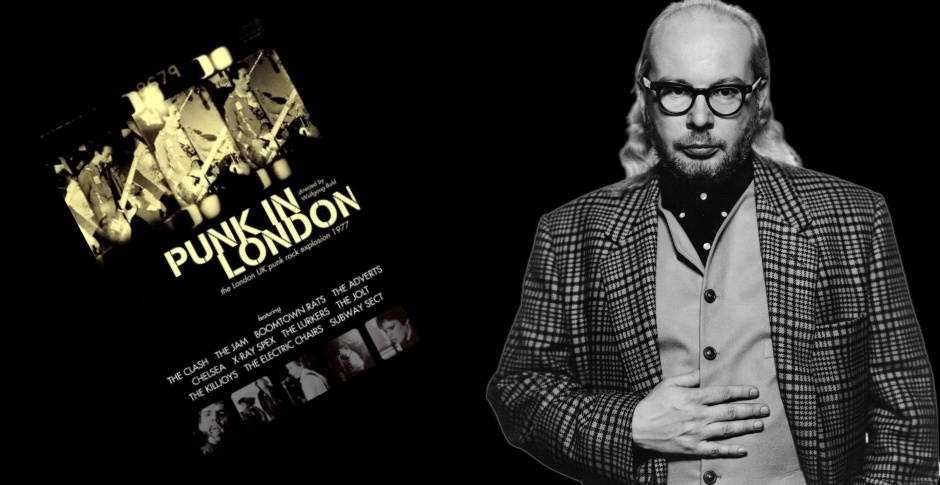Wolfgang Büld: Punk in London
Written by Eva Csölleová, Vítek FormánekI have seen a documentary film Punk in London in circa 1987 on pirate videotape during communism and it was a jaw dropping stuff for me (unbeknown to me, by that time most of the bands in the movie split up and punk waned). It was the first film about British punks I have ever seen and up until today remained as one of my favourite. For past 20 years I was toying with idea of making interview with director Wolfgang Büld who also directed further punk related movies. I could not find any contact for him and almost gave up but my girlfriend Eva helped me with FB connection and the reply from Mr. Büld came within next day and interview was matter of week. Wow, it was my dream come true.
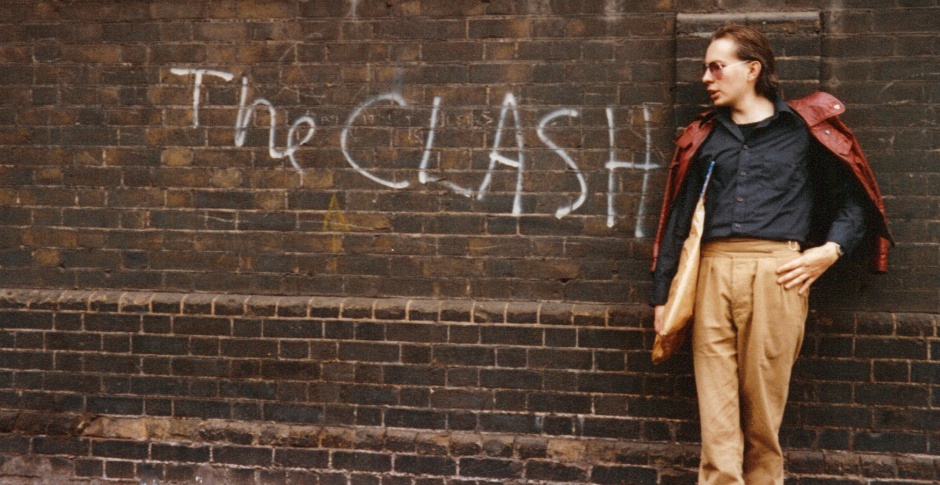
You were 24 in 1977 and studied film school in Münich. Was Punk in London a task from school, something like graduation, or it was your idea since you met the first German punk bands and was interested where did the idea come from?
I intended to shoot a fictional feature film for my examination at the Munich film school. For internal reasons I was asked to do a documentary. Because I was interested in rock music for years and read British music papers since 1969 I was aware that something exciting was starting firstly in NY and coming to London: PUNK ROCK. Some American bands toured Germany and I saw Patty Smith, Blondie, Television etc. I saw the first UK punk bands in London. In 1977 there were hardly any German punk bands, the first was PVC in Berlin, formed by my friend Knut Schaller.
Could you tell me more details about this film, how big was the film crew, how long did you stay and film in London, how did you know where to find various bands and were meetings pre-arranged or it was just blind date, you “ambushed” them in the clubs or rehearsal rooms?
I persuaded the film school to buy me a flight to do research in London. I was 24 at that time.Together with another film student in charge of organisation I went to London. We had a few addresses of independent labels, clubs and record shops. We stayed for a week, met a lot of people and made contacts. Back in Germany, I was able to get about 10.000 DM from the film school and ten days later I went to London again with a crew of 5: cameraman, camera assistant, sound recordist, production manager and me. We filmed about 2 weeks. Filming was very easy at that time in London and most of the bands and artists were eager to be in our movie. We asked the labels or the clubs for contacts to the bands. Some bands, like The Lurkers, heard about us and got in touch with us. The problem I had, was to decide whom to shoot in the short amount of time. One day we had the choice between Generation X, Siouxsie & the Banshees and the Adverts in Coventry. We went to Coventry and were refused to film in the venue they were playing. Bad luck. The punks were in general very friendly but on our first day, one of our microphones was stolen at the Marquee. So, we had to use another one for music recording, that was completely wrong. The student recording the sound was happy that 3 days later someone from the Norwegian TV, who was working for a news show, told him how to record sound from the mixing desk.
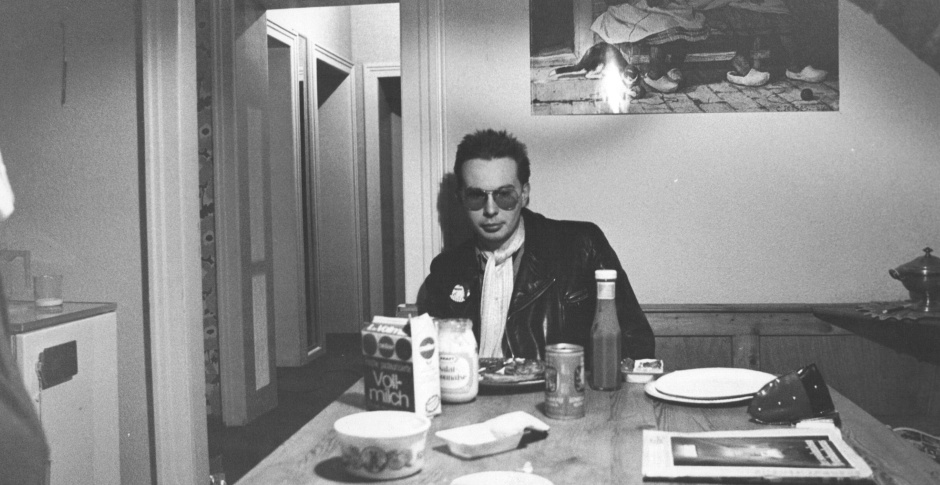
Did you have idea who you want to meet and how do you want to make it into film, what questions ask them or you filmed anything and at home you edited and cultivated it into film?
I had an idea who to film but a lot depended on the availability of the bands in the two weeks we were filming. I choose the bands not by popularity or big record contracts but by my personal taste. For example, I refused the Police because I didn’t like them. With all my documentaries I tried to give the audience an objective impression and not to manipulate them. I think this is the reason why they are successful till today.
I used every meter filmed because film stock and the laboratories were very expensive
You were probably only person who ever filmed short-lived band Killjoys at that brilliant gig. Are those two songs and short interview all you filmed of them or there was more but obviously you edited it. How many meters and hours of film went to the bin and didn´t make it to the film?
We filmed Wayne County in the Vortex and the Killjoys played support. I was very impressed by them, but till I found my crew at the bar etc., it was too late and they had finished their set. We spoke with their manager and he arranged this gig for us in a pub after the lunch time in striptease show the next day. I think, this is the only footage of them and nobody would expect Kevin Rowland to form Dexy´s Midnight Runners. The bass player later joined Girlschool. I used every meter filmed because film stock and the laboratories were very expensive.
Did you plan or want to film also The Clash and Sex Pistols but they were two ”big” to oblige?
The Sex Pistols were in Scotland the time I was filming in London. They tried to do a film with Russ Meyer (Who killed Bambi), but broke up with him. Bernard Rhodes, the manager of the Clash, didn’t want me to film the band in London, because I would not be in the scene long enough. I met him several times and got to know the Clash, especially Joe Strummer. Bernard offered me to shoot in Germany but I could not get in touch with him on the phone on their tour. The day before the gig I went to the venue (Schwabinger Bräu, October 77) and met the Clash on the street in front of it. They were pissed off, because they had problems to order food in German and were thrown out of restaurants. The asked me to translate for them and we had pizza and pasta (not much to translate). Most of them were tired and went to their hotel and I went with Joe and their roadie Roadent to some clubs. Then we returned to the hotel and were informed, that the band had been thrown out. So, Joe and Roadent slept on the carpet in my flat. Next day, we heard that the rest of the Clash had to go to a hotel 80 kilometres away. Because Bernard refused to pay for the bill, they were arrested and really upset. Bernard still didn’t want me to film but Joe said, he would not go on stage if I would not get the permission. Bernard gave in. There were about 150 people at the gig (if you watch, you see that the back of the room is empty). For the Jam there were 50 punters, for the Damned about 100. These bands played in England for thousands of people.
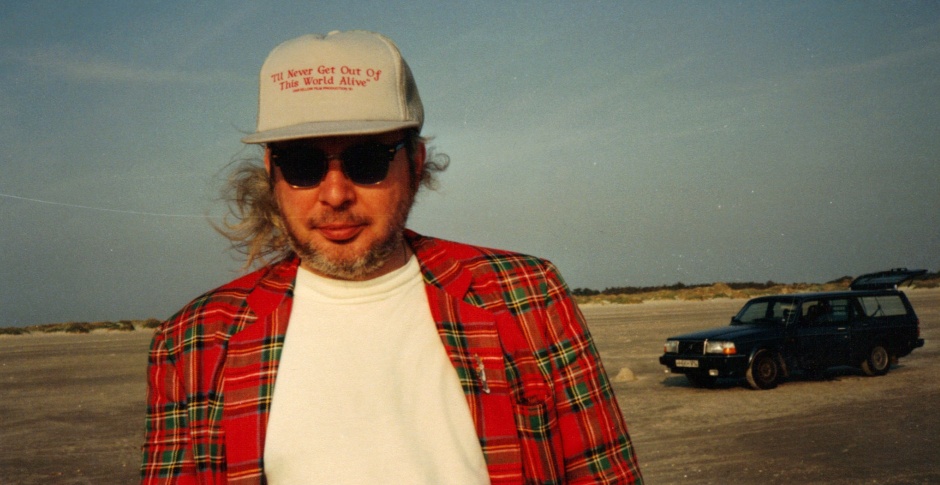
How was it with Arturo Bassic from The Lurkers whom you visited at home much to the horror of his parents?
We visited Arturo at home, where he was living with his parents. I thought, it would be a good idea to show his background and give the impression, that punks are normal people and no dangerous freaks.
It shows that The Stranglers weren´t keen to participate. What went wrong? It also seemed that you came late and X-Ray Spex did the song especially for your camera, is it right?
The Stranglers were the first band on day one I intended to interview. I spoke with them and asked them to wait in front of their rehearsal room and wait for my ‘Action’ to get into frame. After I shouted ‘Action’ ten times, I went out and saw no band. Their PR manager Alan Edwards told us, they thought we would be Dutch and left, when they found out we are Germans. I was shocked, because I never was confronted with this kind of nationalism ever before. We filmed the X-ray Spex (like other bands) in their rehearsal room because they were not playing live in my two weeks of shooting.
You filmed The Clash in Munich that year and it got at the end of the Punk in London movie. They didn´t seem happy with camera on stage. What were they like and was the gig that short?
For the Clash gig I had to use an unexperienced cameraman who did not know it was prohibited to enter the stage. I did not have enough film stock to film more, so the footage is about 30 mins long in full.
Professionally I was never really into documentaries and always wanted to make feature films
Did your movie get to the TV or cinemas and how was it accepted?
Punk in London was released theatrically in Germany and the UK. It was never shown in TV but was and still is on video and DVD worldwide.
Then you filmed The Adverts for movie Bored Teenagers. Was it your idea to capture the band during the tour, it has nice archive gig footage? As far as I know, TV Smith hasn´t seen it yet.
Professionally I was never really into documentaries and always wanted to make feature films. My only chance to do one was to combine music with a plot. I used my experience with bands on the road with a strange kind of love story. For Bored Teenagers I needed a band with an attractive female musician for the plot, so The Adverts were the best (and only) choice. I never met the band before shooting to discuss the project but the manager promised me everything would be fine, they would love the screenplay etc… He forgot to tell me that the band hated film and TV in general. So, he had told them that they would do a tour in Germany with some filming. I could throw away the script the first day and had to direct it like a documentary. Because they were playing themselves, they refused to play things they wouldn’t do personally. I was lucky that I gave the most of the acting to my friend Roadent from the beginning. We were thrown out of hotels 3 times in 2 weeks, Gaye Advert was hardly sober for a minute, the gigs were arranged by us and the audience was paid with free beer and pissed when the band came on stage at last and, and, and…
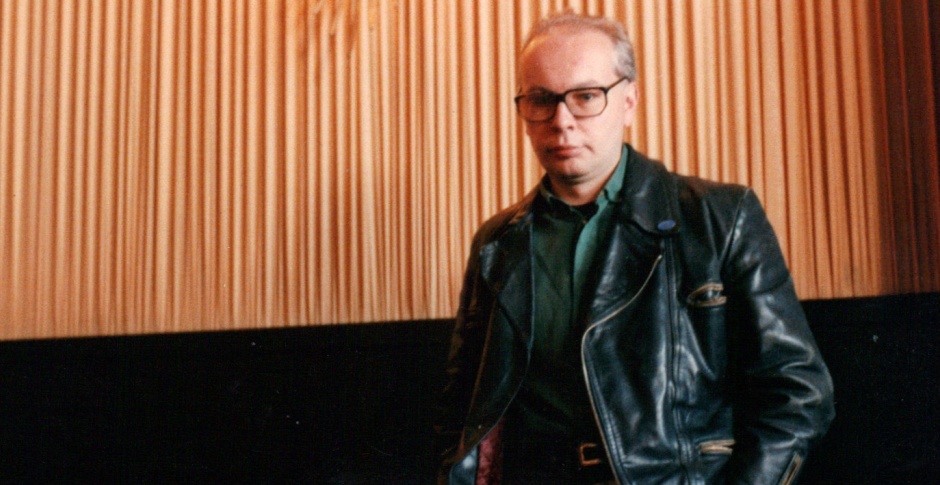
You seemed to be very interested in punk movement and made other documents like Women in Rock and Punk and it´s After shocks. Was it your own idea and initiative or Punk in London was so well received that you were asked to do more of that stuff?
PUNK AND…shows what happened to punk in the end of 79 and trends for the 80’s. It is done much more professionally than ’Punk in London’, good sound, 3 cameras. I enjoyed doing this and a few others (Women in Rock, Berlin Now, Japlan) but lost the interest in music mid 80’s and saw, that I was not enough personally involved in these projects. In 1991 I did my last film about music in the USA (I’ll never get out of this world alive’ about Hank Williams Sr.).
When punk waned, did also wane your interest in it or you still liked that music and DIY attitude which you also plant into the way you make films?
I always wanted to direct fictional feature films and did so from the early 80’s.
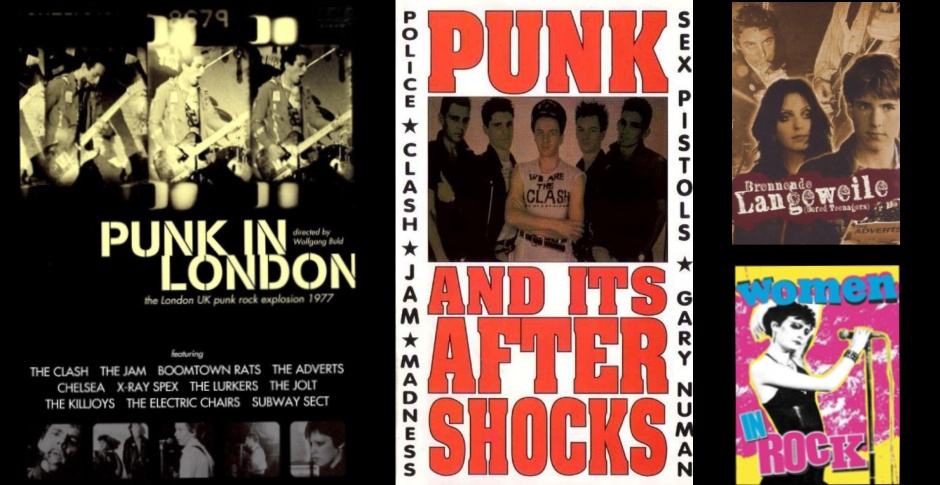
When and why did you move to London? Have you ever visited the same places and people as in 1977 to see how did they change and maybe showed them the old footage and they laughed at their naivety?
I always preferred the UK to Germany and lived there on and off for a long time, since 2013 constantly. In 2001 Nigel Wingrove (from Salvation Films, London) told me, that there were possibilities to shoot low budget horror films in the UK. Actors and crew members were very eager to get some work and would therefore not expect too much money. And more than that, there would be a market for it. The same night I developed the ideas for PENETRATION ANGST and finished the first draft within two weeks. A few months later, the shooting began. It was successful and I produced 2 more brilliant low budget films with Fiona Horsey (LOVESICK – SICK LOVE; TWISTED SISTERS) for the independent DVD market. But this market is dead now because of illegal downloads. Streaming does not provide enough money to finance a film and a I lost a lot on my last film SEA OF LIES. So, I stopped making films. Over the years, I met a lot of the people from the punk scene and saw the changes, but today my only contact from the past is Roadent.
Thank you very much.
Photos, thanx: Wolfgang Büld


